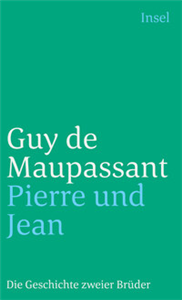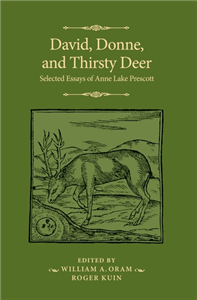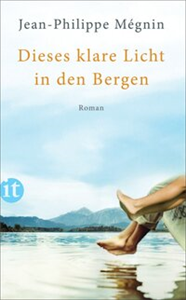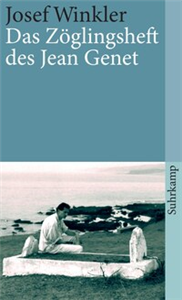Pierre Bourdieu, am 1. August 1930 in Denguin (Pyrénées Atlantiques) geboren, besuchte dort das Lycée de Pau und wechselte 1948 an das berühmte Lycée
Louis-le-Grand nach Paris. Nachdem er die Eliteschule der École Normale Supérieure durchlaufen hatte, folgte eine außergewöhnliche akademische Karriere. Von 1958 bis 1960 war er Assistent an der Faculté des lettres in Algier, wechselte dann nach Paris und Lille und wurde 1964 Professor an der École Pratique des Hautes Études en Sciences Sociales. Im selben Jahr begann er, die Reihe Le sens commun beim Verlag Éditions de Minuit herauszugeben und erhielt einen Lehrauftrag an der Ècole Normale Supérieure. Es folgten Gastprofessuren und Forschungsaufenthalte in Princeton und am Max-Planck-Institut für Bildungsforschung. Seit 1975 gibt er die Forschungsreihe Actes de la recherche en sciences sociales heraus. 1982 folgte schließlich die Berufung an das Collège de France. 1993 erhielt er die höchste akademische Auszeichnung, die in Frankreich vergeben wird, die Médaille d'or des Centre National de Recherche Scientifique. 1997 wurde ihm der Ernst-Bloch-Preis der Stadt Ludwigshafen verliehen.
In seinen ersten ethnologischen Arbeiten untersuchte Bourdieu die Gesellschaft der Kabylen in Algerien. Die in der empirischen ethnologischen Forschung gemachten Erfahrungen bildeten die Grundlage für seine 1972 vorgelegte Esquisse d'une théorie de la pratique (dt. Entwurf einer Theorie der Praxis, 1979). In seinem wohl bekanntesten Buch La distinction (1979, dt. Die feinen Unterschiede, 1982) analysiert Bourdieu wie Gewohnheiten, Freizeitbeschäftigungen, und Schönheitsideale dazu benutzt werden, das Klassenbewußtsein auszudrücken und zu reproduzieren. An zahlreichen Beispielen zeigt Bourdieu, wie sich Gruppen auf subtile Weise durch die feinen Unterschiede in Konsum und Gestus von der jeweils niedrigeren Klasse abgrenzen. Mit Le sens pratique (dt. Sozialer Sinn. Kritik der theoretischen Vernunft, 1987) folgte 1980 eine ausführliche Reflexion über die konkreten Bedingungen der Wissenschaft, in der Bourdieu das Verhältnis von Theorie und Praxis neu zu denken versucht. Ziel dieser Analysen ist es, die »Objektivierung zu objektivieren« und einen Fortschritt der Erkenntnis in der Sozialwissenschaft dadurch zu ermöglichen, daß sie ihre praktischen Bedingungen kritisch hinterfragt.
Seit dem Beginn der 90er Jahre engagiert sich Bourdieu für eine demokratische Kontrolle ökonomischer Prozesse. 1993 rief er zur Gründung einer »Internationalen der Intellektuellen« auf, deren Ziel darin besteht, das Prestige und die Kompetenz im Kampf gegen Globalisierung und die Macht der Finanzmärkte in die Waagschale zu werfen. Die im selben Jahr gegründete Zeitschrift Liber soll dazu ein unabhängiges Forum bieten. Seine politischen Aktivitäten zielen darauf ab, eine Versammlung der "Sozialstände in Europa" einzuberufen, die den europäischen Einigungsprozeß kontrollieren und begleiten soll.
Pierre Bourdieu stirbt am 23. Januar 2002 in Paris.
Jacob Taubes (1923-1987) war zuletzt Professor für Judaistik und Hermeneutik an der Freien Universität Berlin sowie ständiger Gastdozent an der Maison des Sciences de l'Homme in Paris.
Jürgen Habermas wurde am 18. Juni 1929 in Düsseldorf geboren. Von 1949 bis 1954 studierte er in Göttingen, Zürich und Bonn die Fächer Philosophie, Geschichte, Psychologie, Deutsche Literatur und Ökonomie. Er lehrte unter anderem an den Universitäten Heidelberg und Frankfurt am Main sowie der University of California in Berkeley und war Direktor des Max-Planck-Instituts zur Erforschung der Lebensbedingungen der wissenschaftlich-technischen Welt in Starnberg. Jürgen Habermas erhielt zahlreiche Ehrendoktorwürden und Preise, darunter den Friedenspreis des Deutschen Buchhandels (2001) und den Kyoto-Preis (2004).
Geboren am 5. Januar 1927 in Marburg, studierte Dieter Henrich von 1946 bis 1950 in Marburg, Frankfurt und Heidelberg (u.a. bei Hans-Georg Gadamer) Philosophie. 1950 Dissertation: Die Grundlagen der Wissenschaftslehre Max Webers. Nach der Habilitation 1955/56 Lehrtätigkeiten als ordentlicher Professor in Berlin (ab 1960) und Heidelberg (ab 1965), Gastprofessuren in den USA ( Harvard, Columbia, University of Michigan, Yale); 1981 Berufung an die Ludwig-Maximilians-Universität in München, Ordinarius für Philosophie bis zur Emeritierung 1994. Seit 1997 Honorarprofessor an der Berliner Humboldt-Universität.
Eva Moldenhauer, 1934 in Frankfurt am Main geboren, war seit 1964 als Übersetzerin tätig. Sie übersetzte Literatur und wissenschaftliche Schriften französischsprachiger Autoren ins Deutsche, u.a. von Claude Simon, Jorge Semprún, Marcel Mauss, Mircea Eliade, Gilles Deleuze und Lévi-Strauss. Sie wurde mit zahlreichen Preisen ausgezeichnet, u.a. mit dem Helmut-M.-Braem-Übersetzerpreis und dem Paul-Celan-Preis. Eva Moldenhauer verstarb am 22. April 2019.






























